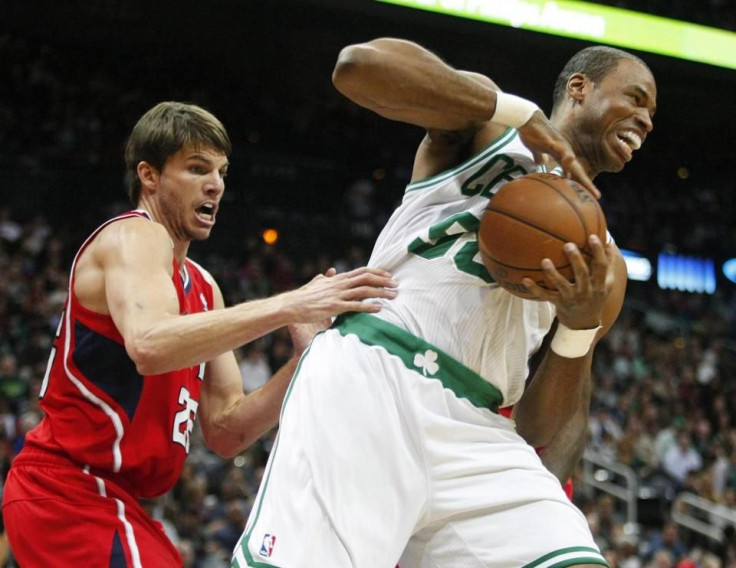Jason Collins: How Sports Illustrated Created A Contrived Nonstory About A Gay Basketball Player

The coming out of gay pro basketball player Jason Collins in Sports Illustrated magazine on Monday has all the earmarks of a well-orchestrated and highly contrived media operation.
It is a case where Time Warner Inc. (NYSE: TWX), the parent and owner of Sports Illustrated, has manufactured its own news in order to generate interest, thereby raising online traffic and selling more copies of its magazine.
And apparently it has worked … at least to a degree.
But let’s not forget that this is not news of any importance whatsoever and also keep in mind that Collins was selected as the guinea pig in this media experiment for very cynical reasons.
There is absolutely no risk whatsoever in Collins' coming out. Rumors have been floating around about him for years -- I recall that when he wore the No. 98 jersey, it was a reference to the torture-killing of gay teen Matthews Shepard in Wyoming in 1998.
More importantly, in the parlance of sports, Collins is a "good citizen” -- that is, he comes from a stable, middle-class suburban family, went to a top-flight school (Stanford University), and has completely stayed out of trouble and avoided controversy during his 12-year NBA career.
This is not some uneducated, trouble-making thug from the streets.
Oh, and by the way, he just happens to have some very powerful political friends, including former Stanford classmates Chelsea Clinton and Massachusetts Congressman Joe Kennedy (both of whom have praised him for coming out).
But in terms of sports celebrity, Jason Collins is a "nobody" (well, at least until Sports Illustrated made him their cover boy). It is doubtful the average sports fan even know who he is, and it is certain that non-sports fans have never heard of him before.
He has played for six teams in 12 years, a journeyman defensive specialist, a solid but unspectacular player who fans barely noticed or cared little about.
Thus, by coming out, he endangers nothing -- not his public image (since he had none), nor his ability to earn (according to Basketball-Reference.com, Collins has made at least $32 million in his career and only has a few years left in the tank anyway).
Now, if a true-blue, high-profile NBA superstar at the peak of his career and earnings capacity-- like Lebron James, Dwyane Wade or Kevin Durant -- came out, that would indeed be a significant event.
But Jason Collins?
He has nothing to lose and much to gain (in terms of temporary media exposure and public sympathy).
Collins claimed that what inspired him to go public with his sexuality were the Boston Marathon bombings, which revealed to him how precious and capricious life is. Of course, his coming out also coincided with the NBA playoffs, when interest in the league is at a seasonal high. Believe me, Sports Illustrated would not have done this story in August or September.
It is also galling to have Collins described as some kind of brave pioneer. It is 2013 and the vast majority of sports fans and the public do not care if an athlete is homosexual (or, if they do object, they will likely keep their thoughts private but continue to follow their favorite teams).
Rumors about the sexuality of other athletes, including Mike Piazza and Troy Aikman, have been floating around for years -- and it hasn’t hurt their careers whatsoever.
Collins is also a multimillionaire who will live his life out comfortably, so he has lost and risked nothing by coming out.
I predict this story will last about two or three more days, as the media news cycle will eventually tire of it and move on. Collins will likely go on the talk show circuit, be praised for his courage and perhaps write a tepid book down the line.
Then he will be forgotten forever.
© Copyright IBTimes 2025. All rights reserved.





















